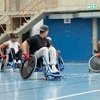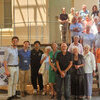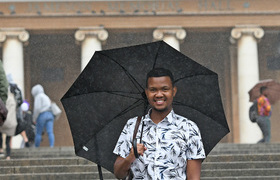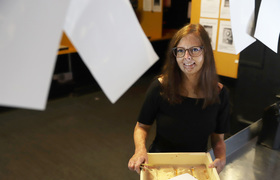‘Education was my only hope’
11 December 2019 | Story Niémah Davids. Photo Supplied. Read time 7 min.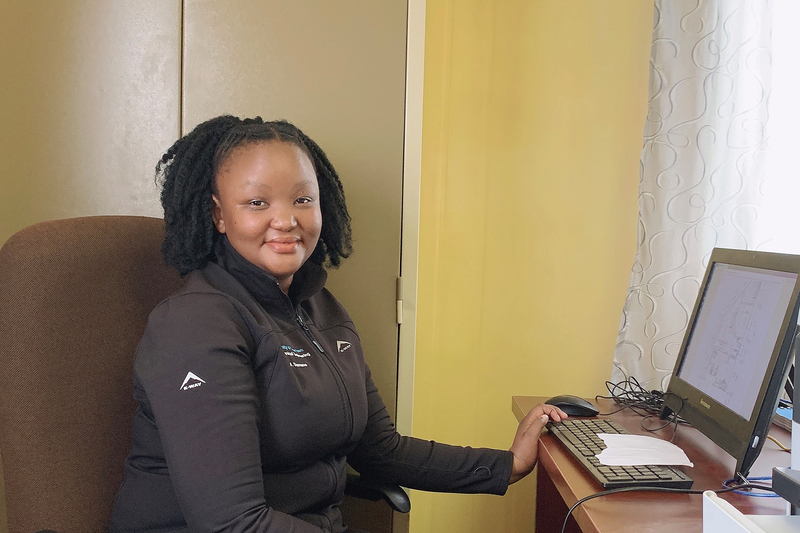
Going to university to further her education had always been on the horizon for Monica Damane. But when she lost both her parents at a young age, the sun instantly set on that dream. With only her grandmother left to care for her and her four siblings, there were very few extras, and the future seemed as bleak as a dark, cold, endless winter.
Ever heard the saying, “This too shall pass”? And for Monica it did pass, thanks in large part to her own considerable efforts. This December, she will join hundreds of University of Cape Town (UCT) students as they are capped in the Sarah Baartman Hall.
Monica will graduate with an MSc in engineering, specialising in geotechnical engineering, obtained through UCT’s Faculty of Engineering & the Built Environment (EBE).
“The road has not always been easy – it’s been very difficult.”
For those non-engineers reading this, geotechnical engineering applies scientific methods and principles to help engineers understand the Earth’s crust and its materials. Importantly, it assists engineers to come up with solutions to pressing challenges.
“I find this industry fascinating. I believe that I’ve made the best career choice for myself,” she said.
“The road has not always been easy – it’s [actually] been very difficult. My siblings and I had to struggle for everything. But today I can safely say that it’s all been worth it.”
Not an ordinary career
When asked why she chose geotechnical engineering, she said the answer to that question goes back a long time – to her childhood.
Born in Lesotho, Monica and her siblings come from humble beginnings. After their parents’ death, the five children were raised by their grandmother at her home in the Quthing District.
It was there that Monica’s interest for geotechnical engineering was born, even though at the time she knew nothing about the field. All she knew was that the walls of her gran’s house were cracking and she wanted to know why.
She made it her mission to answer this question, and years later realised that she needed an engineering degree to get that right. She was determined to do well in school and obtain a first-grade pass to secure her entry into university. And she did just that.
“I had to work harder than others my age because I needed to prove myself. The only way of doing that was by performing well at school and later at university,” she said.
Extraordinary learning journey
She enrolled at Jain University in Bangalore, India to complete her undergraduate studies thanks to a scholarship from the Indian government.
“I simply had to work hard. Education was my only hope.”
She worked extra hard at university, pulling many late nights and early mornings to study for her exams and complete her assignments. She was determined to do well to help chart a new path for herself outside of rural Quthing.
“I simply had to work hard. Education was my only hope. Also, as the beneficiary of a scholarship, I couldn’t let my donors down,” she added.
She completed her undergraduate studies with flying colours and in 2017 UCT gave her the green light to start her masterʼs. Her postgraduate studies were made possible by the Mastercard Foundation Scholarship Program in partnership with UCT.
“It’s been an extraordinary learning journey for me. I’ve grown on so many levels and I have never been more grateful than right now,” Monica said.
Time at UCT
When she arrived at UCT, she was a completely different person. But the institution changed her – for the better.
The graduand recalled that she went from being a very shy, poor public speaker with low self-esteem to someone who later learned to enjoy interacting and debating the field with her peers. This surprised her.
As a direct result of her supervisor Associate Professor Denis Kalumba’s persistent nature and his encouragement, Monica even signed up to her department’s tutoring and mentoring programme, and also joined other on-campus leadership programmes to hone certain skills.
“I used to be horrified at the idea of interacting with others. But Prof Kalumba’s advice proved to be a great success. He saw something in me I didn’t know existed,” she said.
“Today, I use the skills I acquired during that phase of my life in my work. There I need to address many people.”
Pressing question
When Monica started her MSc, the pressing question she wanted answers to for years had still not been addressed.
No surprise then that she dedicated her thesis to establishing why cracked walls were so common in houses in Quthing and possibly in other parts of the country and the world too.
“I found my research challenging and interesting at the same time. I had to travel a long distance from Cape Town to Lesotho to investigate the site, collect soil samples and bring them back to campus for analysis,” she said.
In the end, her research found that soil collapse due to hydrocompaction was the reason the walls were predisposed to cracks. This phenomenon affects a range of landscapes around the world and is the result of structural collapse of certain components in the soil. It occurs after the wetting and loading of unsaturated materials.
“I hope my research findings contribute to the knowledge that soil and geotechnical properties are crucial in rehabilitation and designs of durable structures,” she said.
On the horizon
Sheʼs not yet sure whatʼs in store, but for now Monica is focused on performing well in her job at GWC Consulting Engineers in Lesotho.
“I am fascinated by research and new findings, so I would love to get to PhD level. But for now, I am focused on the now.”
And while she does have plans to complete her PhD, she said sheʼs in no hurry just yet.
“I am fascinated by research and new findings, so I would love to get to PhD level. But for now, I am focused on the present,” she said.
“Iʼll get there.”
 This work is licensed under a Creative Commons Attribution-NoDerivatives 4.0 International License.
This work is licensed under a Creative Commons Attribution-NoDerivatives 4.0 International License.
Please view the republishing articles page for more information.




